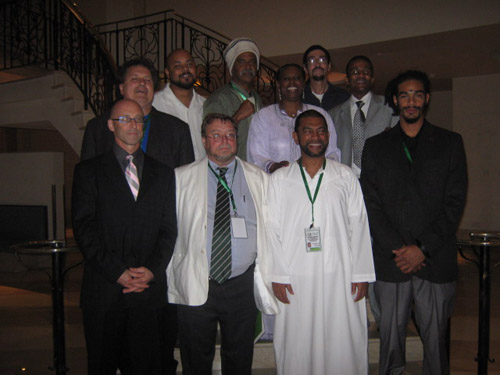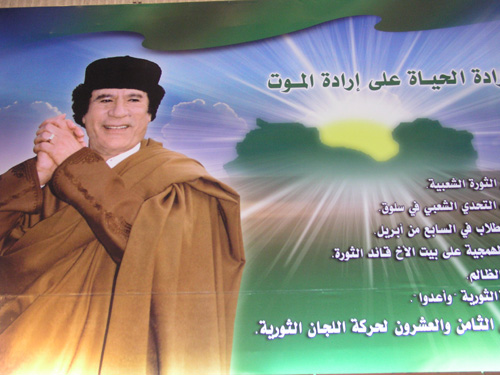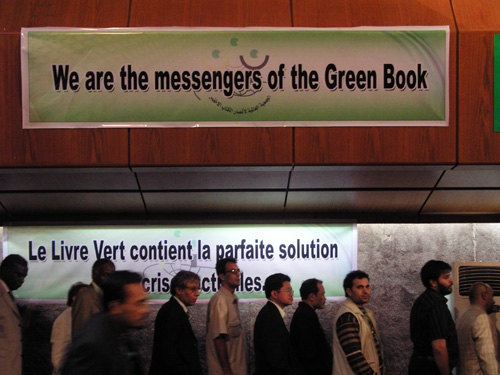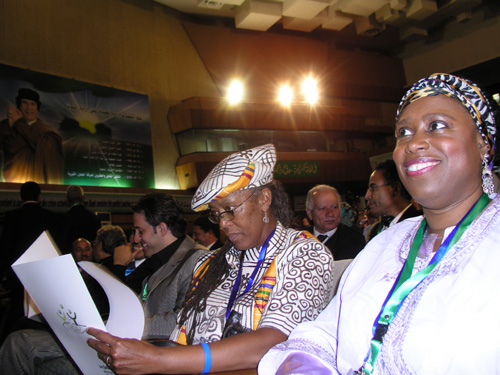10/09/1996
by Bob Fitrakis
They’re here. Yes, indeed. New evidence published in this week’s issue of The Nation directly links Columbus’s own Southern Air Transport to the Contra cocaine network reputedly protected by the Central Intelligence Agency.
In December 1985, Robert Perry, now the director of The Nation Institute’s Investigative Unit, co-wrote the first news story about Contra drug trafficking for the Associated Press.
After the October 5, 1986 crash in Nicaragua of a Southern Air Transport aircraft that was carrying arms to the U.S.-backed Contras, Perry flew to Nicaragua and copied down the entries in the crashed plane’s flight logs. The entries made by co-pilot Wallace “Buzz” Sawyer, who, along with two others, died in the crash, indicated that Sawyer flew a Southern Air L-382 from Miami to Barranquilla, Colombia on October 2, 4, and 6, 1985.
In 1986, Wanda Palacio broke with Colombia’s Medellin Cartel and became an FBI informant. According to The Nation, Palacio also informed Massachusetts Senator John Kerry that she had witnessed cocaine being loaded onto Southern Air Transport (SAT) planes, an admitted CIA-owned airline from 1960-’73, then under contract to the Pentagon.
On September 26, 1986, Senator Kerry hand-delivered an 11-page statement from Palacio to William Weld, then an assistant attorney general at the Justice Department. Palacio asserts that she was with cocaine kingpin Jorge Ochoa at the airport in Barranquilla in ’83 as a cocaine shipment was loaded onto a SAT plane, according to The Nation. She claims that Ochoa told her it was “a CIA plane and that he was exchanging guns for drugs.”
Palacio claims in early October 1985 she again witnessed Ochoa’s aides loading an SAT plane with cocaine. She also confirmed to Kerry staffers that Sawyer was one of the SAT pilots she saw loading cocaine in Barranquilla in early October. SAT officials admitted that Sawyer flew their planes, but steadfastly deny involvement in cocaine smuggling.
Not that we would expect them to admit it. On August 7, 1987 in a Senate deposition, Palacio stated that “the FBI stopped working with me all of the sudden because of this Southern Air Transport deal…Justice doesn’t want to hear me.”
With the CIA-Contra drug connection now national news after the publication of Gary Webb’s series in the San Jose Mercury News, and recently reprinted in the Dispatch, questions need to be asked about the use of taxpayer’s money to bring the infamous Southern Air Transport to Rickenbacker Air Base.
Webb documents how the Contra cocaine network spread crack into the inner cities of Cincinnati and Dayton. Evidence suggests that there was clearly a Colombian cocaine connection in Columbus in the late ’80s and early ’90s. In 1990, the Franklin County Sheriff’s Department under Earl Smith made the single largest drug bust in its history when they confiscated 48 pounds of cocaine from Fernando Solar.
Solar, according to Smith, led the Sheriff’s Department to New York and an apartment building where vehicles were being compartmentalized for drug trafficking. They issued a warrant for one Carlos Wagner. Wagner was later detained by U.S. Customs Agents who confiscated half a million dollars from him and allowed him to return to Colombia. He was later arrested in Houston when he re-entered the U.S. Wagner turned out to be a “mule,” Smith says, for Colombian drug dealer Rudolphio Trahiellio in San Francisco.
In 1992, the Franklin County Sheriff’s Department played a vital role in Trahiello’s arrest in cracking one of the largest drug rings in the U.S. Solar, Wagner and Trahiello are reportedly in prison, but Southern Air Transport remains at Rickenbacker Air Base, courtesy of Ohio taxpayer’s dollars. Why?
When I asked him why there was so much pressure, Gilyard claimed that “Pauly Voinovich and [the governor’s former chief of staff and former Voinovich Companies vice president] Paul Mifsud were in a hurry to repay money to a savings and loan they had busted out.”
Gilyard offered no substantiation. But, a Cleveland Plain Dealer article dated September 8, 1994 provides additional insight. Seems Pauly defaulted on a $6.8 million construction loan for a housing project in 1990, just before Gilyard was appointed. The lender was Columbus-based Mid-America Federal Savings & Loan, which later failed and was taken over by the Resolution Trust Company.
Dale Bissonette, a former chief financial officer of the Voinovich Company, pleaded guilty to bank fraud in connection with the case. Good thing we got Pauly V building the Franklin County jail for $2 million-oops! forgot the overruns-$9 million. Gilyard was fired; Voinovich is at large in Franklin County. Stop him before he builds again.





